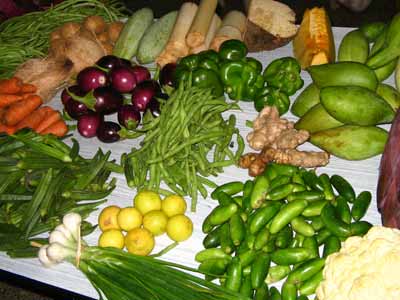Europe E.coli is toxic new strain, trade row grows
A highly infectious new strain of E.coli bacteria is causing a deadly outbreak of food poisoning that is spreading from Germany across Europe, scientists said on Thursday, raising alarm bells worldwide.
Experts in China, part of a global network of laboratories racing to understand the sickness which killed a 17th victim overnight, said they had found the bug carried genes that made it resistant to several classes of antibiotics.
The U.N. said the strain had not infected people before.
With more than 1,500 people already ill in one of the worst recorded outbreaks of E.coli, Russia prompted international recriminations by banning imports from the European Union of raw vegetables, thought to be the likely source of infection.
“This E. coli is a new strain of bacteria that is highly infectious and toxic,” said the Chinese scientists at the Beijing Genomics Institute in Shenzhen city.
At the World Health Organization, the United Nations health watchdog, a spokeswoman said: “This strain has never been seen in an outbreak situation before.”
Holger Rohde, a bacteriologist at Hamburg University Hospital, which has been at the epicenter of the sickness first reported last week said: “We have detected that it is indeed a new, not yet described, variant of this pathogen.
“We will be able to draw conclusions from this in future.”
 Cases have been reported in at least 10 European countries and the United States, although almost all those outside Germany are in people who had recently been there.
Cases have been reported in at least 10 European countries and the United States, although almost all those outside Germany are in people who had recently been there.
Moscow had already banned imports of vegetables from Germany and Spain because of the infections, which German officials originally blamed on contaminated cucumbers imported from Spain before backtracking and apologizing to Madrid.
Russia’s ban on Thursday on all raw vegetables from the European Union prompted cries of protest from the Polish and Dutch governments and a rebuke from the European Commission.
Gennady Onishchenko, head of the Russian consumer protection agency Rospotrebnadzor, said the deaths showed the “much-praised European sanitary legislation, which Russia is being urged to adopt, does not work,” Interfax news agency reported.
The new ban would take effect on Thursday morning, he said. The European Commission said it would write to Moscow within hours to say the move was “disproportionate.”
FARMIMNG ANGER
Spain is threatening legal action over the crisis. It wants compensation for its farmers, who say lost sales are costing them 200 million euros ($287 million) a week and could put 70,000 people out of work.
Spanish Prime Minister Jose Luis Rodriguez Zapatero said the European Commission had been slow to act.
“I would have liked a clearer reaction from the Commission,” he said in an interview on state radio RNE. “The German federal government should know that it has an overall responsibility to other states in the European Union and we shall ask for very forthright explanations and…demand sufficient reparations.”
Poland, which along with France, Germany, is one of the biggest exporters of fruits and vegetables to Russia, said Russian reaction was “excessive compared to the danger.”
“But we must also realize that the time we took in Europe to find out what was going on has been too long,” Poland’s Farm Minister Marek Sawicki told a news conference in Warsaw.
“The European Commission cannot pretend nothing has happened…the situation is already impacting farmers.”
The Netherlands, famous for its mass-production of salad crops such as lettuce and tomatoes, described the Russian ban as a major blow. “After the collapse of the German consumer market, sales to Russia are now also impossible,” junior minister for economic affairs, agriculture and innovation Henk Bleker said.
European Union countries exported 594 million euros ($853 million) worth of vegetables to Russia last year while EU imports of vegetables from Russia were just 29 million euros, EU data show. It was not clear what proportion of that was raw.
BLOODY DIARRHOEA, KIDNEY DAMAGE
German officials have said there is “still is no indication of a definable source” for the outbreak. A spokesman for the European Commission said hundreds of scientists in Germany were working around the clock to try to pinpoint it.
Health experts are advising people living in Germany or traveling there to avoid eating raw tomatoes, cucumbers and salad. “Anyone returning from Germany with illness including bloody diarrhea should seek urgent medical attention,” Britain’s Health Protection Agency said in a statement.
The WHO said it had also been notified of cases in Austria, Denmark, France, the Netherlands, Norway, Spain, Sweden, Switzerland and Britain. Almost all the cases are in people who had recently visited Germany. Many patients have been hospitalized, the WHO said, with several needing intensive care, including dialysis due to kidney complications.
EU officials have said three cases of E. coli linked to the German outbreak have also been reported in the United States.
Health experts say they are shocked by the outbreak, which is on a scale never seen before in the region. The most serious consequence of infection is Hemolytic Uraemic Syndrome (HUS) that frequently leads to kidney failure and can kill.
Whilst most strains of E. coli do not cause disease, some strains including this one are able to attach tightly to the wall of the intestines and produce toxins.
“It is these toxins that cause damage to the gut leading to bloody diarrhea and may cause damage throughout the body,” said Paul Wigley of Britain’s University of Liverpool.
The Chinese scientists said the bacterium they identified was closely related to another E. coli strain called EAEC 55989 which has previously been found in Africa and is known to cause serious diarrhea.
###
By Kate Kelland
LONDON